Spiderman. Wonder Woman. She-Hulk.
As The Millstones spoke with people who said they had been sexually abused at Greater Grace World Outreach, they assigned each a superhero code name.
After all, it took extraordinary strength to speak up against abuse perpetrated by the men of the evangelical megachurch that had dominated their lives since early childhood.
They had been taught that the church’s pastors were God’s Men, doing divine work on earth. But in the spreadsheet, The Millstones gave snake names to pastors and other prominent church members accused of abuse: Viper, Lancehead, Anaconda.
About this series
This is the second story in a series investigating allegations of child sexual abuse at Greater Grace World Outreach and the church’s handling of the accusations. Read the first story in the series.
• Part III: One family’s agonizing journey to uncover secrets and abuse at a Baltimore church
• Greater Grace responds: Baltimore pastor defends church’s record on child sex abuse: ‘If we know it, we act on it’
Their investigation started slowly, with a few calls and messages, then gained speed after they sent an email to former classmates and old friends.
“This is not a witch hunt,” the email read. “It is a movement of victim-survivors and their loved ones who are saying, ‘not one more.’”
Soon the experiences of deceit, manipulation and molestation came flooding in. There were dozens of leads to chase, stories of friends of friends, and old message board postings with allegations spanning decades.
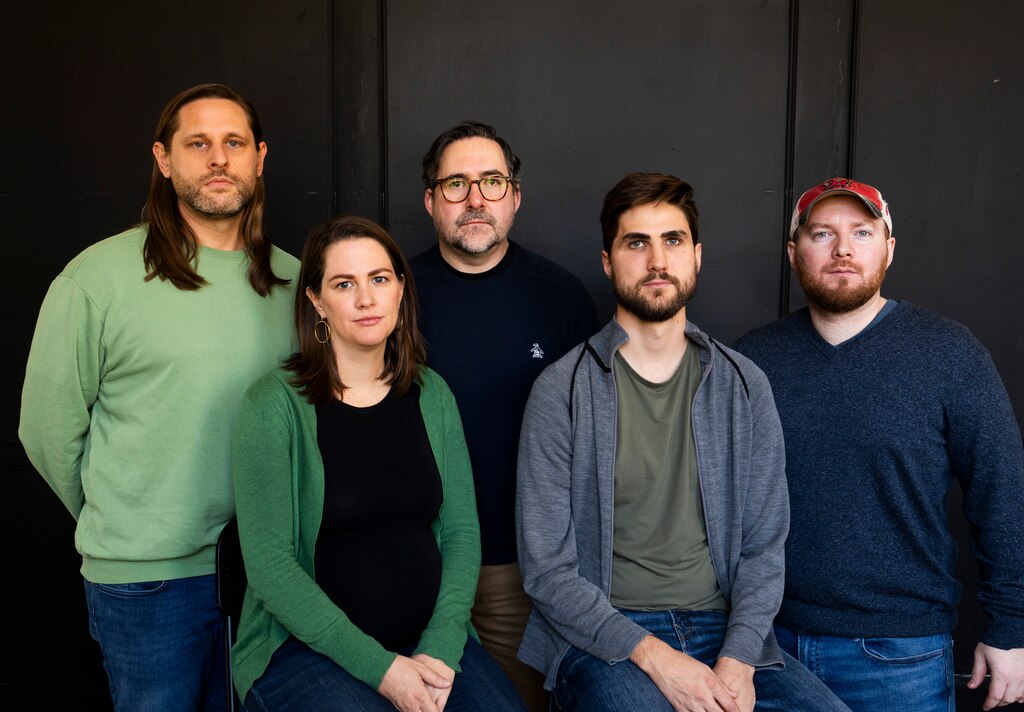
In all, 32 people told The Millstones they had been sexually abused as children by men of Greater Grace, primarily prominent church members or leaders. Some shared their stories for the first time, several before they had mustered the courage to tell their own families. The Millstones also learned of 18 additional survivors through people they considered trusted sources. And no place — not even the church’s most beloved institutions — was safe from predatory behavior. Not the annual conference of foreign missionaries or summer camp. Not even the church building itself.
“People had been wanting for a long time to talk about their experiences with a safe person,” said Jonathan Rasmussen, 42, a member of The Millstones.
A disturbing pattern soon emerged. Church leaders often did little to acknowledge the breadth and severity of abuse. In one criminal case, top church officials expressed more concern for the abuser than for the victim. Instead, from the pulpit, pastors criticized congregants who called for accountability.
Greater Grace officials declined to address specific claims and incidents, issuing a statement saying the church “fully cooperates with any investigations conducted by law enforcement or childcare agencies.”
“We welcome and support their interventions, expertise, and authority to bring perpetrators to justice for the protection of society,” church officials said.
The Millstones’ name was inspired by a Bible verse in which Jesus said those who lead young children astray would be better off cast into the sea tethered to a heavy stone.
Yet it was The Millstones who often found themselves drowning in the heaviness of their work as the four-year investigation threatened their relationships with relatives, friends and coworkers who still belong to the church.
They pressed on, logging each harrowing accusation in their spreadsheet.
Anaconda. That name appeared again and again.
It was Jesse Anderson, a youth volunteer who taught Bible classes to kids and teens and worked as a camp counselor. He had also been convicted of molesting a boy in the church and had escaped prison time for his felony offenses.
Anderson belonged to one of the church’s best-known families, the second youngest of four boys. His older brother, Jonathan Anderson, was also a Sunday School teacher and church camp counselor. And his father, Pastor Eric Anderson, was the longtime head of the Maryland Bible College and Seminary and a friend of Pastor Carl Stevens, the church’s founder.
The Millstones uncovered allegations against all three men.
A two-decade-old secret
It was January 2020, about two months since Rasmussen and several friends sitting around a bonfire had discovered just how many of them knew someone who had been sexually abused in the church.
Searching for answers, Rasmussen, who had left the church more than a dozen years earlier, picked up the phone and dialed the former Greater Grace member he knew best: his brother, Daniel, in Arizona.
“I want to talk with you about something that’s kind of heavy,” Jonathan Rasmussen said. “Do you have any information about any type of abuse? Anyone who might be willing to talk to us?”
He could hear his brother slide open the patio door at his home and step outside.
“Yes,” said Daniel Rasmussen, now 39. “Something happened to me.”
As a child, Daniel Rasmussen often played video games with the youngest Anderson boy.
He had few other friends, and the Andersons welcomed him, just as they had with scores of students training to become pastors.
Daniel Rasmussen said when he was around 10, Jesse Anderson — then 13 — cornered him alone and began asking him about sex. Did he like girls? What parts of a woman’s body did he like best? What about guys? Had he ever seen one naked?
Another time, Daniel Rasmussen told his brother, Anderson went even further, removing the boy’s pants and his own and then molesting him.
It was a secret he had kept for two decades. Maybe it would help his brother hold the church accountable.
For Jonathan Rasmussen, now the church’s failures were personal.
‘A horrific conviction’
That summer, another Millstone, Matt Veader, reached out to Shane Villeneuve, who had once taken part in a Bible study for “misfit and rebel kids” that Veader led. The Millstones knew Villeneuve had brought the charges that led to Jesse Anderson’s conviction. Anderson agreed to a plea deal, avoiding a criminal trial. Villenueve’s story of abuse had never been revealed.
Like Rasmussen and Veader, Villeneuve had been born into Greater Grace. The family moved from Montreal to Baltimore in 2000 so his father could study to become a pastor at the Bible college helmed by Pastor Anderson.
They were in awe of the Andersons, who appeared to be model members of the church.
One summer day after church in 2004, Jesse Anderson asked Villeneuve’s mother if the boy would like to do yard work. In exchange, he said, Villeneuve, then 11, could swim in the Anderson family pool. The account that follows is drawn from interviews with Villeneuve and his parents and court records.
Villeneuve jumped at the chance. But after he finished the chores, Jesse Anderson, then 21, led him away from the pool to his bedroom to “play a game.”
Behind a closed door, Anderson took off Villeneuve’s pants and orally raped him. When the boy tried to escape, Anderson held him down and said this is just what guys do, Villeneuve recalled. It’s perfectly normal. Just don’t tell anyone. For a year, as the powerful pastor’s son had instructed, Villeneuve kept the secret.
The following summer, Anderson invited Villeneuve back to his house and the boy refused. He broke down and told his parents what happened.
They reported the assault to Baltimore Police, and Anderson was eventually charged with felony sex offenses and other counts.
After Anderson was arrested, no one from the church reached out, the Villeneuves recalled. Instead, the parents sought meetings seeking guidance. The first Greater Grace pastor put them at ease. “It’s not your fault,” the high-ranking pastor told the boy.
The next meeting, though, was unnerving. Another powerful pastor, Steven Scibelli, told them that “it would be very bad if Jesse spent a lot of time in jail,” the Villeneuves recalled.
They said Scibelli suggested that if Jesse Anderson were sent to prison, he would become a victim of sexual abuse himself.
Asked to comment on his handling of abuse allegations, Scibelli told The Baltimore Banner, “I have no interest in talking about this situation,” before hanging up.
The Villeneuves were distraught and disturbed. Their first loyalty was to their son, but they also deeply trusted the church and its leadership.
“I’m coming to you as a parent of a child being molested, and you’re making me feel like if I do anything against Jesse, then we’re bad,” Debbie Villeneuve said in an interview.
As she spoke with the prosecutor handling Anderson’s case, Debbie Villeneuve recalled Pastor Scibelli’s words. She and her husband asked the prosecutor to show leniency to the man who had molested their son.
Judge Shirley Watts noted this act of mercy in her remarks at Anderson’s October 2005 sentencing.
“Make no mistake about it,” she said. “This is a horrific conviction, and one for which you should have been incarcerated, but for the benevolence of the victim’s family in this matter.”
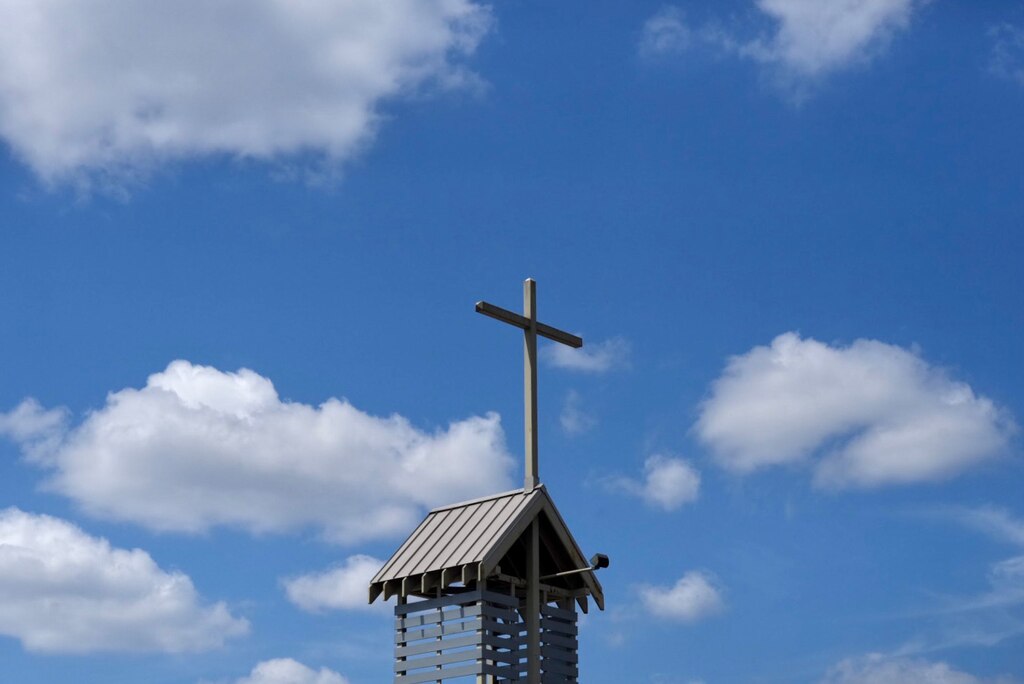
Felony sexual abuse of a minor — to which Anderson pleaded guilty — could have landed him in prison for up to 25 years. Instead, he received a 10-year suspended sentence and probation, with no prison time. Anderson must register as a sex offender for the rest of his life.
Anderson, who now lives in rural Virginia, did not respond to two letters seeking comment. Outside his home, where chickens roamed in the backyard, his mother told reporters her son had made a mistake, paid a price and was trying to move forward.
“He’s been dealt with, through the court system,” said Joycelyn Anderson. “He’s on the [sex offender] list, and if there was anything I could do to get him off of it, I would. Because he’s not that person anymore that he was when he was a kid.”
The Villeneuves remained involved in the church after Jesse Anderson’s sentencing, but felt like church officials didn’t grasp the gravity of what happened.
They said that rather than apologizing for his son’s actions, Pastor Anderson told them: “You have no idea how hard this is for Jesse.”
Eventually, the Villeneuve family left the church, and then Baltimore as well.
As the years ticked by, Shane Villeneuve, 31, became increasingly convinced that others had been abused by Jesse Anderson. The man had seemed so practiced, a seasoned manipulator.
In the showers
Among those who told Veader they had been abused by Jesse Anderson was Sam Skiles-Rodriguez, a trans woman.
In 2002, years before transitioning, Skiles-Rodriguez was 13 and assigned to a boys’ dormitory at the church’s summer camp. Anderson, then 19, was her counselor.
Anderson lavished the teen with warmth and kindness, inviting Skiles-Rodriguez to join him at the morning prayer meeting. The attention made Skiles-Rodriguez feel special, the 35-year-old recalled.
The third day of camp brought one of the week’s highlights: a massive food fight. Afterward, Skiles-Rodriguez made a beeline to the bathrooms to wash off egg yolk and pancake syrup, clad in the swim trunks boys at camp wore to shower.
Anderson, who was there, told Skiles-Rodriguez to remove the swim trunks so he could wash them. Skiles-Rodriguez did.
Then Anderson told Skiles-Rodriguez to join him in his shower stall. Skiles-Rodriguez, naked, balked. I need to help you wash the food out of your hair, Skiles-Rodriguez recalled Anderson saying.
Eventually, after Anderson agreed to return the swim trunks, Skiles-Rodriguez met the young man at the sink and bent forward. Anderson began to wash Skiles-Rodriguez’s hair, but pressed his pelvis into the teen, noticeably aroused, Skiles-Rodriguez recalled.
A few months later, Skiles-Rodriguez told her parents what happened. They wanted to call police, she said, but John Love, Greater Grace’s powerful and long-serving youth pastor, persuaded them not to, according to what Skiles-Rodriguez’ parents told her.
Love assured the family that the church would discipline Anderson and not allow him to be a camp counselor again. Love promised to “make camp safe again,” Skiles-Rodriguez recalled her parents telling her.
Love confirmed in a statement that he blocked Anderson from attending the camp, but denied attempting to persuade Skiles-Rodriguez or her family from going to police. Love added that he strives to treat all allegations of abuse seriously and with empathy and to comply with his moral and legal obligations to report and address instances of abuse.
Two years later, in 2004, Anderson assaulted Villeneuve.
‘I turned into a rebellious kid’
Late last summer, another survivor shared his story with Rasmussen, saying that he, too, had been abused by Jesse Anderson.
At the church’s annual convention in 2001 or 2002, Nathan Alderson’s family was visiting from Ohio, where his father was pastor of a Greater Grace affiliate. Jesse Anderson, who was 18 or 19 at that time, sought out Alderson, then around 11, treating him to pizza and ice cream.
“At such a young age, having someone older interested in you makes you feel good,” recalled Alderson, now 33.
Soon Anderson had swept Alderson off alone and was asking him to re-enact a recent trip to the doctor and strip off his clothes. Then he groped him, Alderson recalled.
The next day, Anderson got Alderson alone again, despite the boy’s protests. This time, Anderson told him to disrobe and try to cover his naked body with toilet paper, Alderson said. Instead, he ran.
For the rest of the trip, Alderson clung to his parents and dodged all of Anderson’s invitations. He never told his parents what happened. He tried to bury the memories, but the incident changed him.
“I was embarrassed. I felt stupid and ashamed of myself,” Alderson said. “I turned into a rebellious kid right after that.”
At the pastor’s desk
Beyond calls and messages to old friends, The Millstones mined another trove of information, the message boards of a defunct website called FACTnet.
About 15 years earlier, Greater Grace members had filled the boards with accounts of alleged sexual abuse and the failures of church leaders to hold abusers accountable. But it was a struggle to identify the people, who had posted using pseudonyms.
One poster, “Preston,” wrote about being a young child in the church, back when it was called The Bible Speaks and headquartered in Massachusetts. Preston’s family, like so many early church members, moved from place to place, sleeping in dorms or shared housing with other families.
Preston alluded to being abused in one shared living space in a narrative written from her perspective as a child. “I don’t like the top floor. Sometimes he locks me up there,” she wrote in a post from November 2005. “Sometimes I run for the door and he laughs at me because he is stronger. He touches me and I don’t like it.”
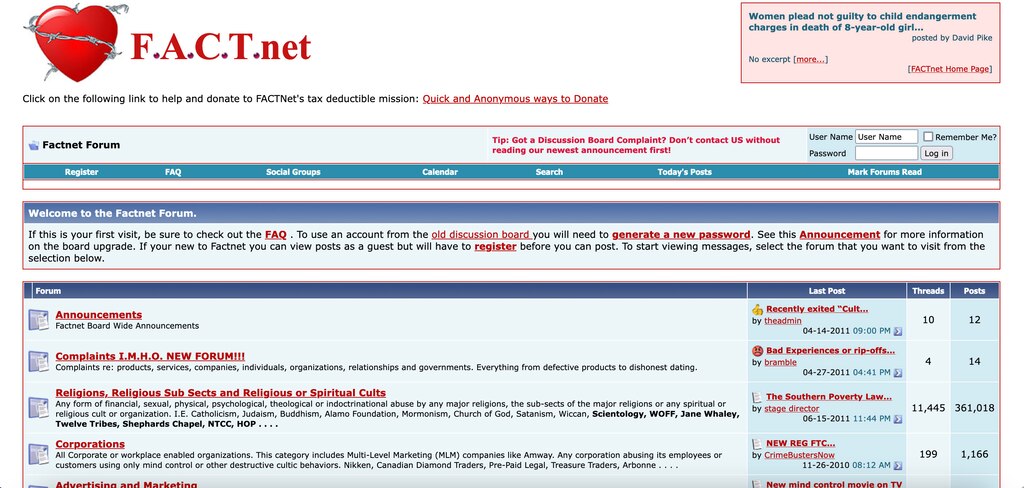
After extensive sleuthing, Veader tracked down Preston, whose real name is Erika Slater. As a paralegal and child abuse caseworker in upstate New York, she now helps other survivors of abuse.
The Millstones were shocked by Slater’s story. She said she had been abused by Pastor Anderson, the father of Jesse Anderson, and a high-ranking official who once led the church’s Bible college and school.
Slater said she was taught from an early age that pastors are “Men of God” whose authority should never be questioned. She recalled feeling uncomfortable when Pastor Anderson — her neighbor and school principal — held her on his lap or embraced her tightly.
On several occasions in the spring of 1980, Pastor Anderson ushered her behind his desk and groped her, Slater said.
Slater vividly remembers the fear she felt as a first grader. Hearing Pastor Anderson’s voice echoing through the school hallways made her shudder.
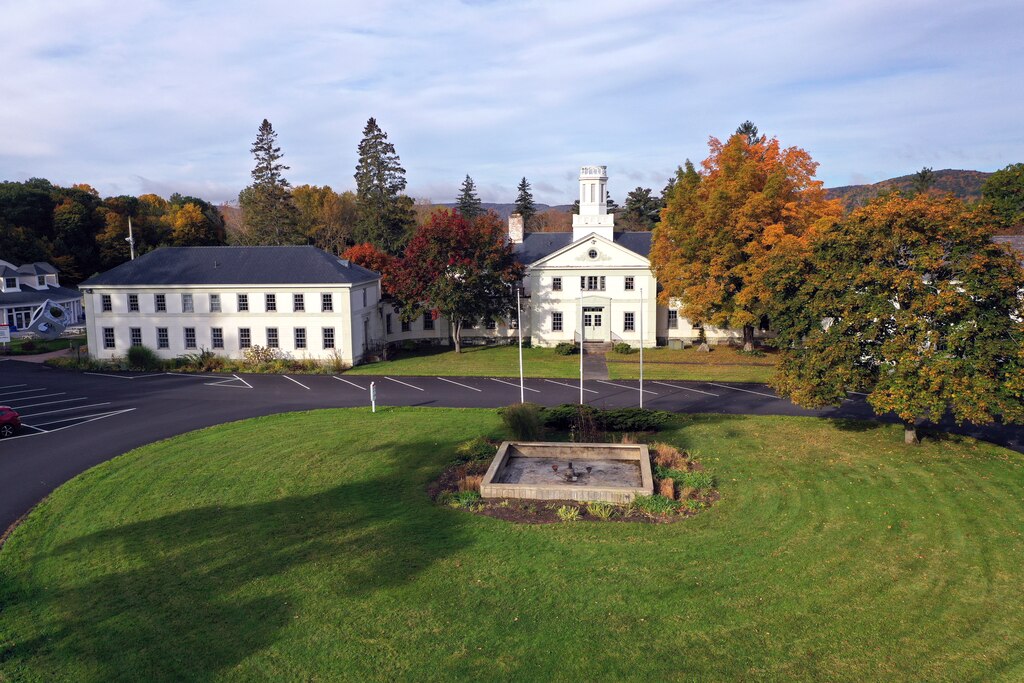
The following year, Slater’s family moved and she escaped him. For years, she kept the abuse quiet, she said, knowing she’d be ostracized if she criticized a powerful pastor. But now, decades after leaving Greater Grace and its “flawed theology,” she said she has a healthy relationship with God.
“There is no comfort in coming forward,” said Slater, 50. “I’m doing so because I want to be a voice for people who can’t.”
Another woman who attended the church-affiliated school in Massachusetts in the early 1980s also recalled troubling experiences with Pastor Anderson.
Jami Huisjen Scott said high school girls used to call Pastor Anderson “Lips,” because he would frequently press his chapped lips to theirs. He acted as if the kisses were a sign of Christly love, she said.
“It was very distasteful,” Scott recalled. “I think he knew we couldn’t gracefully say no.”
When Scott was a high school student, Pastor Anderson hired her to watch his children one evening. When he returned home, he casually took off his pants in front of her, she said.
Scott said she reported his actions to the woman who oversaw the church dormitory where she lived. That woman told Scott she would handle it; Anderson never again hired her to babysit, Scott said.
Visited by reporters at his son’s home in rural Virginia, Eric Anderson, now 79, appeared at the front door but walked away. His wife, Joycelyn, said he is recovering from a stroke.
She said he told her that Slater’s claims were “total garbage” and that he had no comment. She said she had not previously heard of anyone making such a claim against him, and questioned why nothing had been said earlier.
Leaving Greater Grace has given her perspective, Jocelyn Anderson said. Her current pastor speaks of being a broken person, “not someone who’s a high and mighty authority” or beyond reproach as a man of God.
“Grace doesn’t give you a license to sin,” she said.
Another Anderson is accused
The allegations of abuse against the Anderson family continued. The Millstones found themselves including a second Anderson brother in their spreadsheet.
A former Greater Grace student, Abby Cerquitella, 36, told The Millstones that Jonathan Anderson, Jesse Anderson’s brother, groped her when she was in first or second grade in the mid-1990s.
It was New Year’s Eve, Cerquitella recalled, and Jonathan Anderson, her Sunday School teacher, was supervising a room full of children who were watching a movie while their parents attended a prayer service.
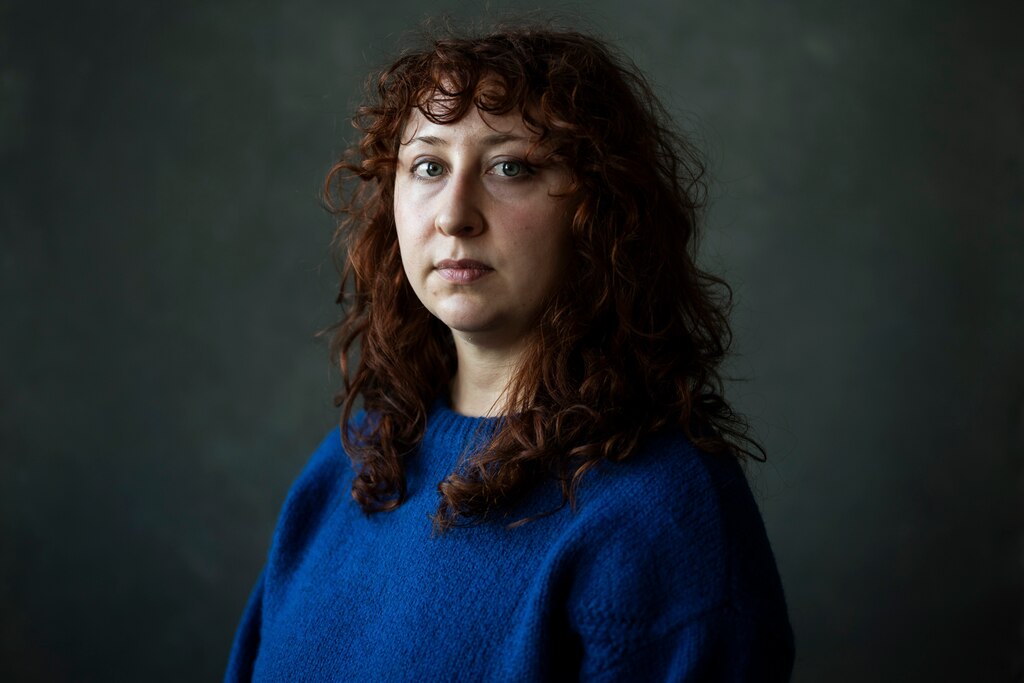
Jonathan Anderson, then in his early 20s, pulled Cerquitella next to him, she recalled. Then he wrapped his arm around her shoulder, slid his hand down her shirt and touched her nipple, she said.
Cerquitella tried to squirm away, but Jonathan Anderson held her tighter and continued to grope her chest, she said. It was an “icky, oily and weird” feeling, she recalled.
She told her parents and they reported the incident to Youth Pastor John Love and Pastor Dan Lewis, at the time one of the church’s highest-ranking leaders. Jonathan Anderson then stopped teaching Sunday School, Cerquitella recalled.
Jonathan Anderson did not respond to repeated requests for comment.
Love said in a statement that he does not believe this incident was reported to him directly, although he was aware that Jonathan Anderson was stopped from teaching.
For many years, Cerquitella said, she felt uncomfortable when someone wrapped an arm around her shoulders. She wanted to come forward with her story because she knows other church members will recognize her name.
“This is not just an anonymous story they can slough off,” she said.
The pastor’s office
The Millstones also uncovered an accusation against Lewis, one of the pastors the Cerquitellas had gone to. Tiffany G., now 36, said she was a sixth grader attending Greater Grace Christian Academy in the late 1990s the first time Lewis invited her to his office for counseling.
Tiffany, a member of one of the church’s most prominent families, asked to be identified by her first name only to protect her privacy.
She remembers how Lewis would pull her from lunch and walk her to his office on the far end of the church’s sprawling Moravia Park Drive complex for counseling. And she remembers how numb she felt when he excused his secretary. She knew what would happen next.
Tiffany says Lewis sexually assaulted her repeatedly throughout middle school during those meetings. Sometimes he penetrated her with his fingers, and other times, he forced her to perform oral sex on him, she says. Afterward, she would walk back to class in a daze.
Tiffany recalls looking out the window of his office at the bustling church parking lot, wishing she could scream for help. For years, she didn’t speak about the assaults at all. She didn’t think anyone would believe an accusation against such a powerful man.
Lewis left Greater Grace in the 2000s when there was a split among leaders of the church, and moved to Florida. He died in March during reporting for this series.
Going public
By this spring, the group had entered more than four dozen survivors of abuse into their spreadsheet. Nearly every other person with whom they had spoken had either been victimized or knew someone who had been.
Each allegation brought fresh pain. Sorrow at the victim’s suffering. Guilt that no one had noticed something was wrong. Anger and betrayal that men they had once revered had committed or concealed abuse.
The Millstones laid awake at night, worrying that the church would find out about their project and retaliate. Some were overwhelmed by the toll the work was taking on them. Two members felt it was too much and left the group. The remaining four members understood. They were plagued by nightmares, migraines and anxiety.
“It was physically and emotionally exhausting,” said Jonathan Rasmussen, who was juggling work, college classes and parenting, too.
Early on in the investigation, Rasmussen contacted an attorney who specializes in representing survivors of sexual abuse in churches.
“I am reaching out to gather some information,” he wrote, detailing some of the the allegations at Greater Grace. “It seems that a culture of abuse is perpetuated and covered up using church policy and its own damaging doctrinal teaching.”
The attorney Boz Tchividjian, a grandson of famed preacher Billy Graham who specializes in church sex abuse cases, met with The Millstones and listened to their concerns. Not only were three members of a prominent church family accused of abusing young people, but high-ranking pastors, men of God, had played down the allegations.
Tchividjian suggested the group publicize its findings. The congregation — and the public — deserved to know what the group had discovered, he said.
The metaphor he chose stayed with them: “Burn it all down.”
Editor’s note: This story was updated to include a response from Pastor John Love, which he provided several days after publication.
Read part III: How one family helped uncover secrets and abuse at Greater Grace World Outreach
Resources for survivors of sexual assault & religious trauma
- MCASA: Maryland Coalition Against Sexual Assault.
- RAINN Get help 24/7. Call the Rape, Abuse & Incest National Network by dialing 800.656.HOPE.
- The Trevor Project: A nonprofit focused on preventing LGBTQ suicide. Visit TheTrevorProject.org or text 678-678.
- The Reclamation Collective: A network of therapists who specialize in religious trauma. Visit ReclamationCollective.com for more.


Comments
Welcome to The Banner's subscriber-only commenting community. Please review our community guidelines.